Dry eye disease is a common eye condition that affects millions of people nationwide. Characterized by a lack of sufficient moisture in the eyes, dry eye can be both uncomfortable and bothersome.
Dry eyes can lead to various uncomfortable symptoms, such as redness, irritation, and blurred vision, but at times, this may seem like just a minor irritation. However, it’s essential to understand that if left untreated, dry eyes can lead to serious complications, including permanent vision loss.
The thought of losing one’s vision can be frightening, but fortunately, by taking timely measures, you can treat dry eyes and help promote healthy vision that lasts a lifetime.
Understanding Dry Eye
Dry eye disease occurs when your eyes don’t produce enough tears or produce tears that are of poor quality. Tears are essential for maintaining the health of the front surface of the eye and ensuring clear vision. They provide lubrication, nourishment, and protection to the cornea, which is the transparent outermost layer of the eye.
Tears are composed of 3 key components:
- An outer oily layer
- A middle watery layer
- An inner mucus layer
Each layer plays a vital role in maintaining the tear film’s stability and preventing it from evaporating too quickly. Any imbalance or deficiency in these components can lead to dry eye disease.
Some of the common causes of dry eyes include aging, hormonal changes, certain medications, medical conditions like Sjögren’s syndrome, and prolonged screen time.
Dry Eye Symptoms
Dry eye can cause a wide range of uncomfortable symptoms. You should consult an eye doctor if you experience any of the following dry eye symptoms:
- A gritty or sandy feeling in the eyes
- Redness
- Burning or stinging sensation
- Excessive tearing (a response to dryness)
- Blurred vision
- Sensitivity to light
- Difficulty wearing contact lenses
- Eye fatigue, particularly during prolonged activities such as reading or using a computer

Can Dry Eyes Cause Blindness?
While dry eye disease is generally not considered a direct cause of blindness, it’s essential to recognize that untreated or severe cases can lead to vision complications.
If your eyes remain dry for too long, it can lead to corneal damage, which can result in permanent vision loss. When the cornea dries out, it may become inflamed, leading to vision disturbances, corneal ulcers, and scarring. In some cases, this damage can be irreversible, ultimately leading to permanent vision loss and potential blindness.
In addition to corneal damage, dry eye may impact your visual clarity and comfort in other—usually less permanent—ways, such as:
- Reduced Visual Clarity: The discomfort and visual disturbances caused by dry eye can significantly reduce visual acuity and clarity. This can interfere with daily activities, such as reading, driving, and watching TV.
- Increased Risk of Infections: The compromised tear film can make the eyes more susceptible to infections, such as conjunctivitis (pink eye).
- Impact on Night Vision: Dry eye symptoms often worsen at night, affecting night vision and driving safety.
Prevention & Treatment for Dry Eyes
Preventing dry eye disease and managing its symptoms are essential for maintaining eye health and comfort. Here are some preventive measures you can take:
- Blinking more frequently when using digital devices or in dry environments
- Wearing glasses or goggles to protect your eyes from wind and dust
- Using a humidifier to add moisture to the air
- Limiting screen time and taking periodic breaks
- Protecting your eyes from UV rays by wearing sunglasses
- Avoiding smoke and dust as much as possible
While these lifestyle and environmental changes can help to prevent dry eye, if you’re already experiencing dry eye symptoms, it’s essential to seek treatment to alleviate discomfort and prevent complications.
Dry eye treatment options may include:
- Lubricating eye drops
- Eyelid hygiene
- Supplements
- Prescription eye drops
- In-office treatments
By consulting with your eye doctor, you can get the proper treatment for your specific dry eye. In many cases, your eye doctor can diagnose the underlying cause of dry eye and recommend treatments that address the root cause.
Promoting Healthy Vision
While dry eye disease itself is not a direct cause of blindness, it can lead to complications that may affect visual comfort and clarity. The discomfort, reduced visual acuity, and potential corneal damage associated with dry eye can significantly impact a person’s quality of life. Therefore, it’s crucial to seek proper diagnosis and treatment for dry eye to prevent complications and maintain good eye health.
At Restore Vision Center, we offer comprehensive dry eye diagnosis and treatment. Contact our team to schedule your exam and get started on the road to relief today.




